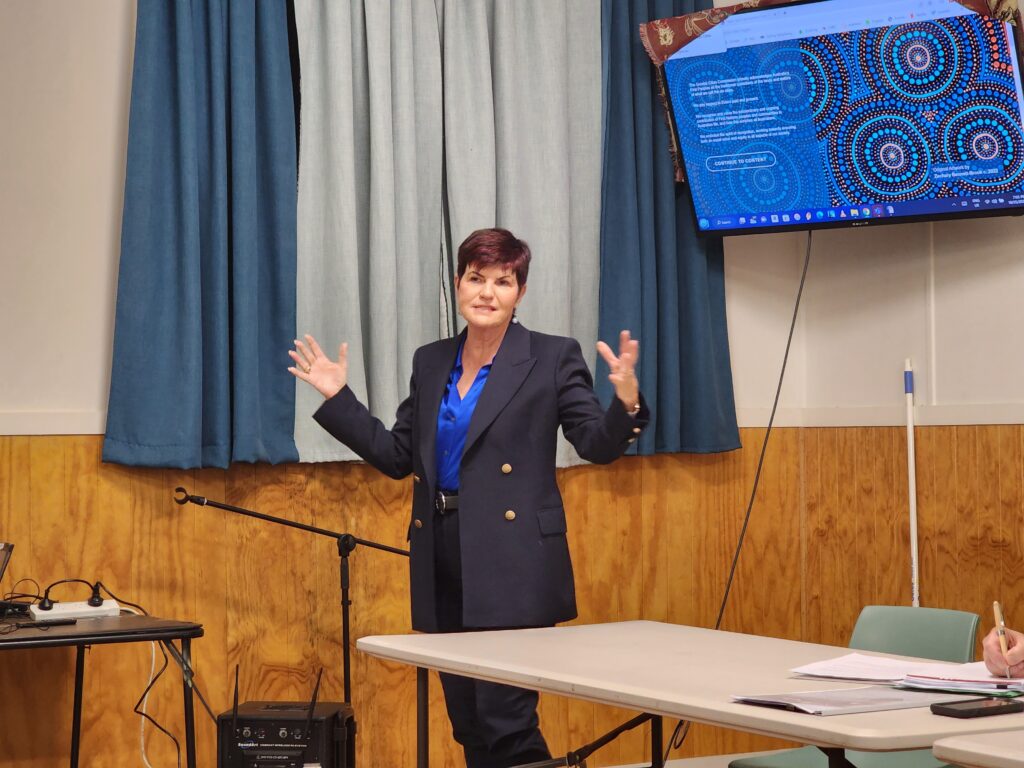The Minns NSW Government has redeployed almost 350 staff from the Greater Cities Commission into the Department of Planning and Environment but the Six Cities Strategy lives on.

By Jacquelene Pearson
During the March NSW election campaign the then Labor Opposition had stated there would be no change to the Greater Cities Commission and its Six Cities Strategy if they were elected.
Three months later and after recent pressure from the property development lobby, the NSW Labor Government has changed its mind, or at least half changed its mind.
“The NSW Government today took another firm step towards a stronger, more efficient and more streamlined NSW planning system focused on the delivery of more housing, jobs, and infrastructure,” was the official spin on Tuesday, 27 June when the announcement to kill the Greater Cities Commission was announced.
“Almost 350 staff from the Greater Cities Commission (GCC) and Western Parklands City Authority (WPCA) will be redeployed into the Department of Planning and Environment,” the NSW Government media release said.
“The transfer will reduce the overlap and duplication between agencies and redirect valuable but limited resources to bolster planning delivery against the Government’s priorities.
“The previous Government left us with a planning system that included too many agencies reporting to too many ministers. It was a system that, put simply, wasn’t delivering enough housing for people in NSW.”
So far, so good. The Point understands the internal situation at the Greater Cities Commission has been somewhat chaotic and the promise to release six City Strategies in the second half of 2023 has been running significantly behind schedule.
Environmental advocates would be comfortable with any delays that would result in the Commission’s mandate to “unlock” more land for housing, taken to mean the loss of more bushland and habitat to make way for new housing on the edges of suburbia, particularly in the Illawarra, Central Coast and Newcastle.
On May 10 the Sydney Morning Herald reported that the “development lobby” had been pushing Premier Minns to abolish or “dramatically overhaul the Greater Cities Commission, accusing the planning body of being obsessed with jargon and slamming it over inaction and accountability”.
It appears the development lobby, not the environmental advocates have won the argument. The Greater Cities Commission has been “disappeared” but the underlying strategy still has a heartbeat, at least for now and that’s definitely bad news for habitat, sustainability and biodiversity.
Developers may not be allowed to make political donations in NSW but it appears they still hold sway in Macquarie Street, irrespective of which major party is on the government benches. The media release goes on to report that “NSW will require approximately 900,000 additional dwellings by 2041. Yet we have a projected housing construction shortfall of 134,000 dwellings over the five years of the National Housing Accord.
“Planning processing times had blown out from 69 days on average in July 2021 to 116 days in March 2023.
“The NSW Productivity Commission has noted NSW builds fewer homes compared to other states, and this is a direct cause for why housing in NSW costs more than it does anywhere else in Australia.
“We need more supply in places people want to live and work, located near to the services people need if we have any chance of meeting our State’s, and particularly Sydney’s, housing demands.”
That last paragraph sounds word-for-word like something Central Coast Cities Commission Robyn Parker said when she spoke recently at a Kariong Progress Association meeting.
The handsomely paid GCC Commissioners “will continue to assist with metropolitan planning for the Six Cities Region and provision of advice to the Minister for Planning and Public Spaces.
“DPE Acting Secretary Kiersten Fishburn will now work with the Commissioners and they will finalise draft housing targets and the six City Plans.
“This work will embed the new Government’s rebalancing of population and housing growth for all 43 local councils and deliver on our commitments required under the National Housing Accord.
“The WPCA Board will continue to set the direction for the building of Bradfield City and for economic development and investment attraction to the Western Parklands City.
“Both GCC and WPCA Chief Executive Officers will now report to the DPE Secretary.
“The NSW Government has an ambitious agenda to reform planning and boost housing supply. We have already announced the following changes:
- Reforming infrastructure contributions so that roads, schools, health services and open
- Spaces are delivered in a timelier manner to areas of housing growth to address
- Providing additional support for the development and assessment of social and affordable housing
- Creating changes for market development to increase the amount of housing delivered on private land as well as public land.
- Auditing surplus government land that could be used for housing
- Expanding the role of Landcom
- Improving building quality by establishing the NSW Building Commission
- Making renting fairer while providing surety to property owners
Premier Chris Minns said “We made a firm commitment prior to the election to streamline planning accountabilities and within 100 days of taking office we’re making a clear and positive step in that direction.
“There’s no point having housing targets if you can’t deliver the housing. This is about ensuring we have the right team in place to deliver the housing and infrastructure we so critically need in this state.
“We’ve been upfront about the challenges we face. And overall this will mean more affordable housing, and more supply overall.”
Paul Scully, Minister for Planning and Public Spaces said “There were too many agencies operating in the NSW planning system with similar responsibilities, meaning that accountability for delivery was blurred and confusing.
“The system created resourcing gaps in critical areas, while duplicating effort in others, and with the housing challenges we face, it wasn’t fit for purpose.”
“We need to pool all our resources to deliver on the new government’s priorities including housing and jobs, and the infrastructure to support them.
Chris Hanger, CEO of the Greater Cities Commission explained it this way: “Our responsibilities under the Greater Cities Commission Act 2022 remain the same, and our commissioners will remain in place, providing an important, independent voice to NSW Government.”
Hanger also keeps his job, sort of. He will from July 1 report to the DPE’s acting secretary Kiersten Fishburn.
“Our priorities for this year haven’t changed,” he said. “We will continue to finalise housing targets and the development of the Region and City Plans in consultation with communities across the Six Cities Region,” he said.
The Point knows of at least one community looking forward to extensive and appropriate engagement before its City Plan is put in place. It doesn’t appear to have commenced yet.
Enjoy this article? Explore more of our ESG News below:
Environmental Justice News | Social Justice News | Good Governance News | Climate Change News | ESG Investing News | Housing News | Renewable Energy News | Breaking Central Coast News
Prefer your news delivered to your email inbox?
Click here to subscribe to our free weekly newsletter to stay up-to-date with local, national and global ESG news.


